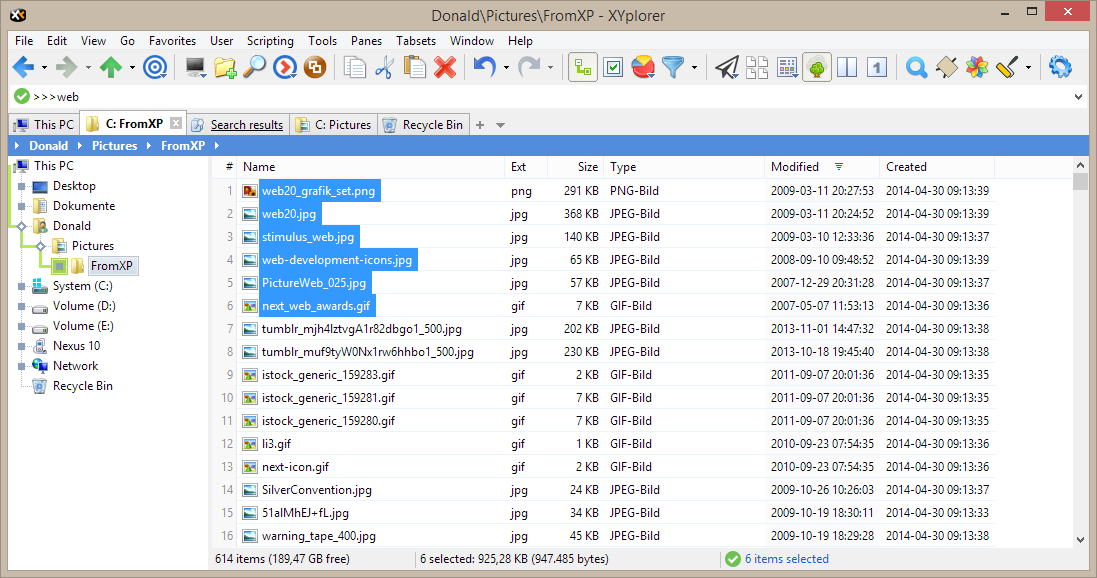Xyplorer Scripts Samples
Shims and Scripts settings allow you to run custom code to configure or clean up environments before and after a container is executed. See Startup/Shutdown Scripts and Shims for more information. Active Directory fields enable you to limit where the container can run based on queries to the Active Directory Domain Controller. Bomberman blast wii pal wads. Create Previews, short samples of audio tracks, that you can use when trying to decide which audio files you want to add to your collection. Use a Sleep Timer to play your music, gradually fade it over a set period of time, and then turn off your PC – perfect for listening to tunes before you go to sleep.
Didn’t finish yesterdays writing, got interrupted for tea, and couldn’t get back into the flow, so just published as is. Not sure how this daily thing is going to go, as no longer have any real privacy and it’s difficult to get any focus after tea. So what to write about?
Since its freewriting the answer is anything that pops in my head. File Management So spent some of the day running file searches using and creating paperfolders based on years, so can now call up a list of files from a given year and see what files I modified in that year. Though thus far not very helpful as most of the files in any given year I didn’t create, the stuff background files created by software: so need further filtering.

Otherwise identified I have some 27,366 spreadsheets, once again needs further filtering to separate unique files from repetitive use of common files on specific projects. Spent past few weeks exploring xyplorer’s scripting and quicksearch capabilities. Still I went back to VBScript on friday and wrote a script, for my send to menu, to sort files into folders based on the length of the file base names. This adds to the scripts I have for sorting files into folders based on: file types, date, alphabet, image size or batch count. I originally wrote a script to sort files based on date, so that could sort out internet explorer shortcuts. If things are sorted into appropriate folders I can generally find things faster than search can find the files: even if I have to explore the folder structure first to refresh my memory. Anycase most of the VBScripts I have, all basically have the same structure: build a static list of files and/or folders then do something with that static list, and otherwise avoid duplicate names.
The code is therefore highly repetitive with a little bit of new code. I could delete the common code and create a common library and then combine them into a single file of type wsf. On the other hand a one line xyplorer script can replace an A4 sheet of VBScript code. I do have a VBScript: xproject, which takes the number of a project, and then scans the hard disk for that project, checking archives and current work then opens windows explorer making use of the following command line:%SystemRoot% explorer.exe /e,/root,%1. However, whilst windows 10 still supports this format, there is little advantage as the navigator pane is already bloated with garbage, which cannot get rid off except by some potentially unreliable tweaks to the windows registry. Whilst I have replicated the project search in xyplorer, I have set some variables, which allow quickly moving to the currently set project number.
I initially tried using aliases, but I couldn’t write a script to set the alias, so abandoned that idea. I also changed my approach in using environment variables: well more changed to what I wanted in the first instance. My original approach I wanted to set an environment variable on as needs basis, but couldn’t figure out how to set a new value for a variable in windows using batch files and have it persist between sessions: I discovered the command SetX to complement the traditional Set. Due to not knowing about SetX, my first adapted approach was to set several environment variables using the windows dialogue boxes: not by batch file. Then use VBScript to determine which variable to use for the task at hand. With SetX, I now have a batch file which uses the other variables to set a common variable with the current value. In Short I have an environment variable, which I can use in windows explorer or xyplorer, which stores the path to my current working environment: either local hard disk, network folder, or external drive. Christopher hart modern cartooning pdf download.